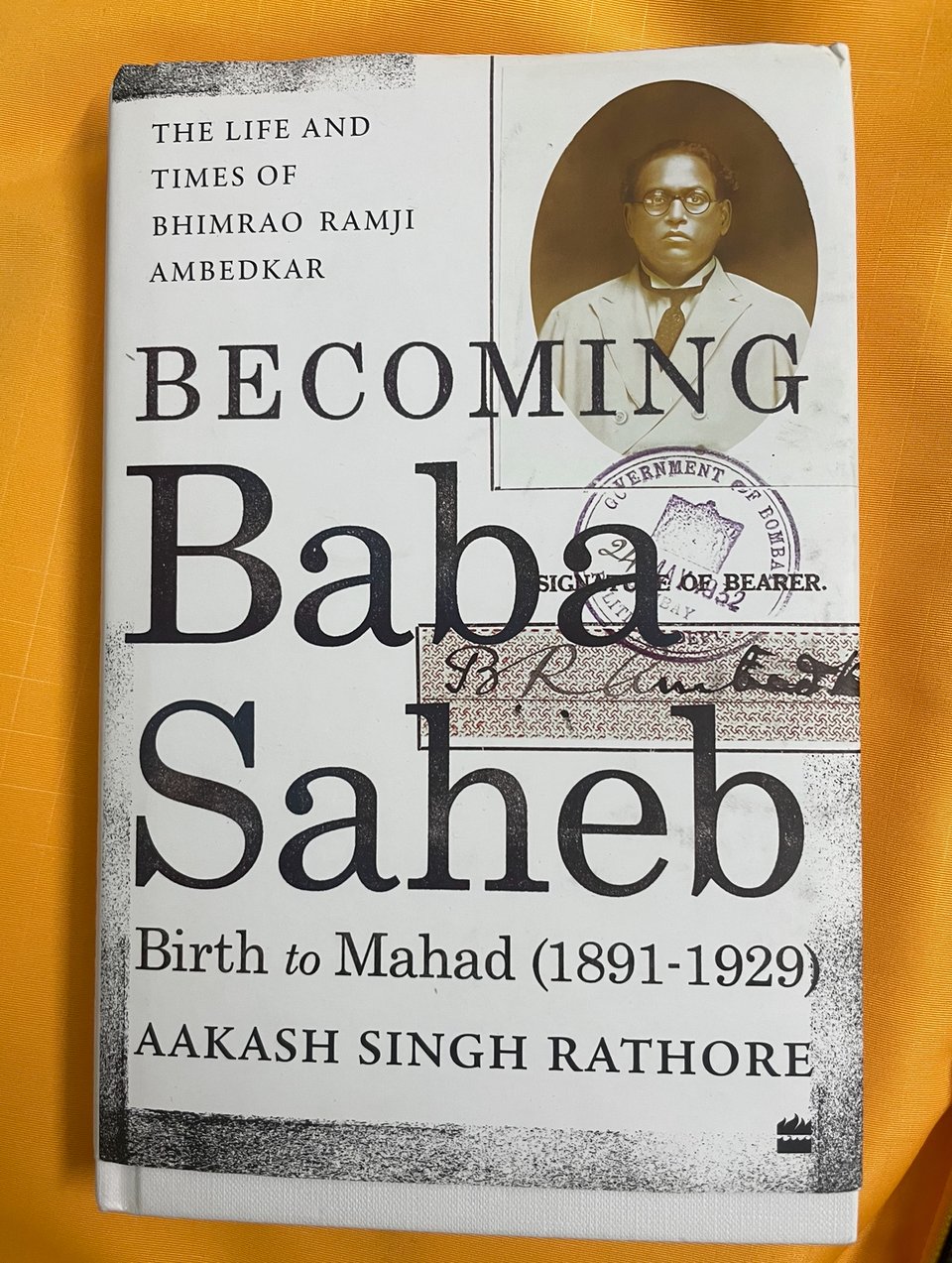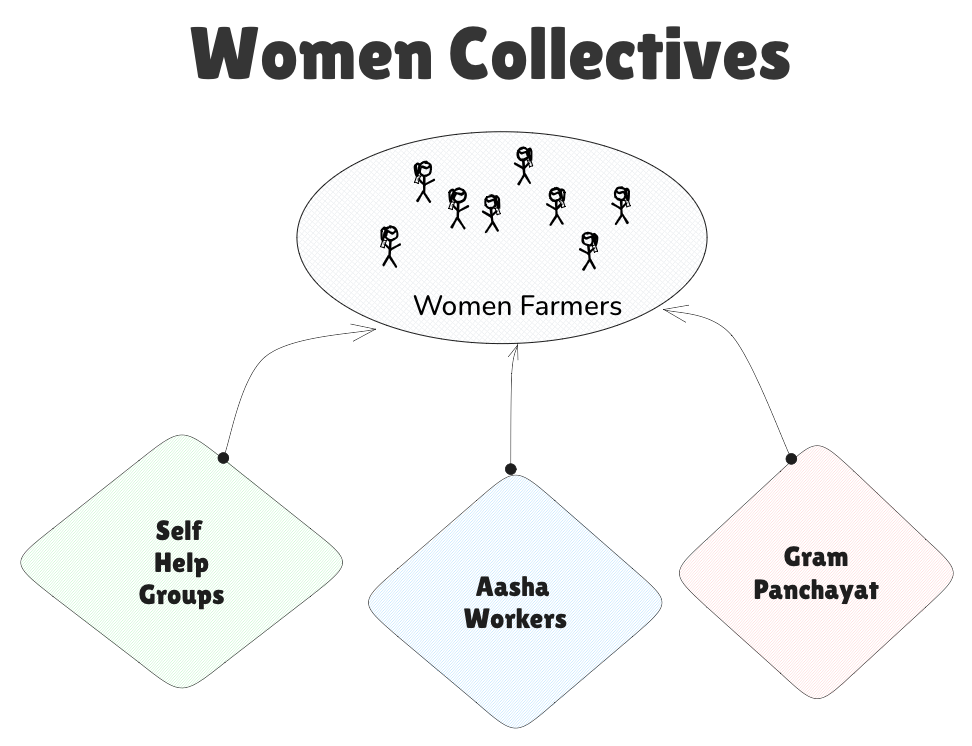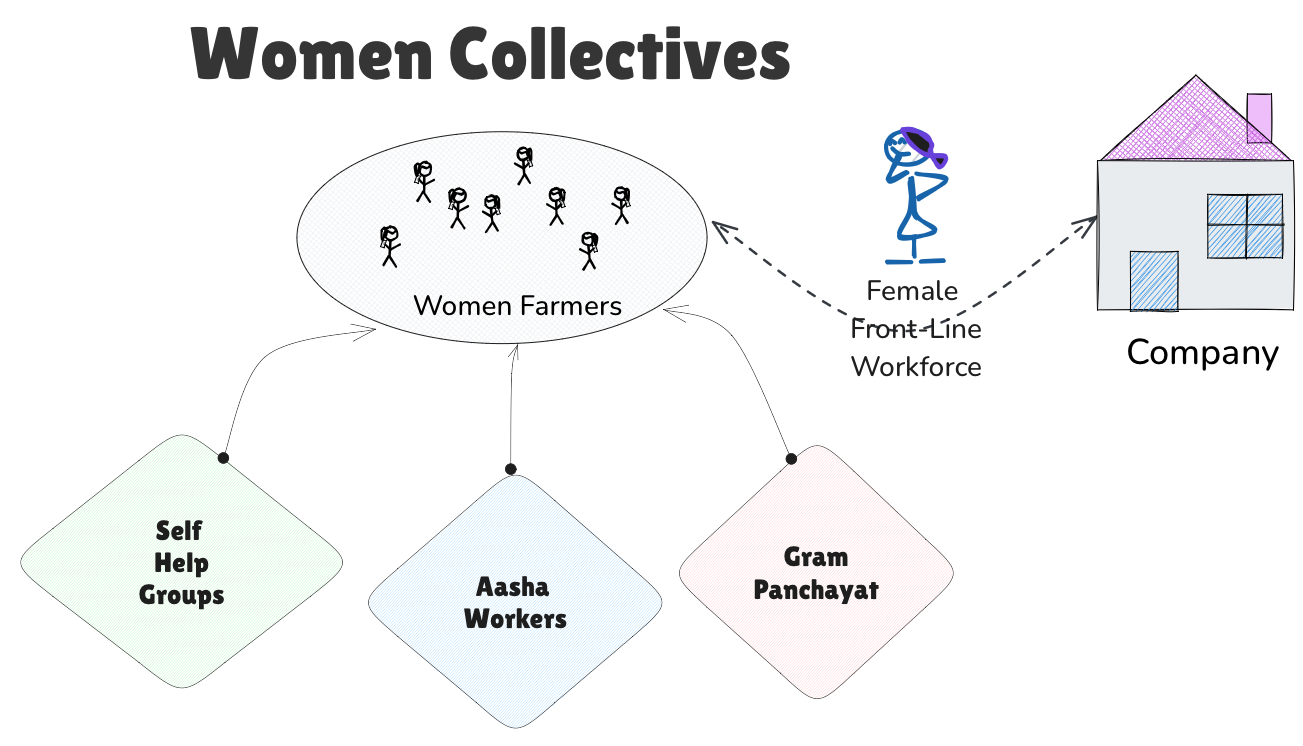Babasaheb on agriculture
Exploring Dr. Ambedkar's innovative ideas on making agriculture economical and empowering women farmers.
Welcome to the 5 new subscribers who signed up after my public announcement on Linked In. Hope you enjoy this issue. Please share it with folks who might find it interesting as well.
The archive is rich with most of my writing. Check it out if you would like to read more of my writing. Now on to our 62nd issue
Update on making agriculture economical
I recently finished a biography of Dr. Ambedkar titled “Becoming Babasaheb”. It documents the journey(accurately) from his birth to 1929 when Bhiva Ambedkar became Babasaheb for the depressed classes in pre-independence India. The book also showcases a wide assortment of his prolific writings over different topics. It featured his thoughts on agriculture which lit at fire in me from the moment I read them.

Dr. Ambedkar held two doctorates, a practicing law degree from England and a couple of masters degree. A polymath in every sense. Across these strands, he was always true to his discipline of economics. Whether it was in writing his dissertation papers, dissents of bills or his editorials for his newspapers.
While he is well known for his lucid writing on caste and justice system, he also focused on agriculture as it was a dominant economic activity of our country during that period. First, he wrote a paper in 1918 on Small Land Holdings in Agriculture and then participated in select committee of “On Small land holders relief bill” of 1928 while in Bombay legislative council.
In all my readings so far on this topic not one frames it the way Babasaheb does. His lens on agriculture is economical in every sense.
In his paper on “Small Holding of agriculture” in 1918, he refutes the recommendation of Baroda committee on consolidating land holdings. I wrote about it at length in a post about making agriculture economical. The crux of the paper was that we should aim to make farms economical. So, not just consolidate but to enlarge the land holding . He wrote this prior to working in India or becoming a voice of the depressed classes.
After his lived experience in India, he changes the way he wanted to approach making agriculture economical. When he revisits this topic 10 years later during debating a bill “On Small land holders relief bill” whose objective is to prohibit farming of lands lower than a standard unit of farm. In his written dissent to the bill he formulates the co-operative cultivation.
Let me cite his own words so you can see how he frames it. First he dissects scattered and small lands as two separates issues.
This bill proposes to solve the two problems which affect the agriculturists of this presidency. One is the problem of scattered farms and other is the problem of small farms. I do not think that any honourable member who has listened to the speech of my honourable friend the Settlement Commissioner will deny that the scattered farms are an evil and that that evil should be cured as far as possible. I agree with him that there are a great many disadvantages in having scattered farms and so far that part of the bill is concerned I agree that there should be consolidation. Coming to the question of small farms I must say that I differ from the honourable mover of the bill on the question that small farms are unprofitable.
He proposes even if consolidation and enlargement are necessary we should abridge it to farming and not extend it to consolidation of ownership of land.
For the initiated readers, this is similar to our own findings of consolidating commodity on grade could facilitate aggregation without change in ownership of produce. Thus, farmer could get equitable portion basing on their contribution to the graded produce.
Similar principle is applied to formulating co-operative farming (emphasis mine).
The purpose of the bill is to have larger farms under single cultivation than is the case now. Now I feel that if we can combine small farms owned by different owners for cultivation we ought to stop there and not attempt to bring them under the ownership of a single individual unless it was proved that single ownership was necessary for combine cultivation.
I am certain that the establishment of co-operative farms of standard size will give us all that we want under the bill and will save from destruction the small farm-owners.
Under this scheme the ownership of a farmer will remain intact, except to the extent that he shall not be at liberty to cultivate it unless he agrees to combine it with a contiguous farm or farms so that the total area so cultivated shall be equal to or exceed the standard unit. Such a covenant if it were made to run with the land will do away entirely with the necessity for the restrictions which the bill seeks to impose on transfers and partitions. For, whoever acquires the fragment he will not be able to disturb the arrangement for the cultivation of the co-operative farm. The co-operative farm will be like a shareholders’ company in which the company remains even though the shareholders change. The scheme is simple in its operation and avoids the evils of the present bill
The way he protects property rights of the small land holding farmers but curtails their liberty of farming is similar to applying for permission to construct a building. The design of the building should abide by the norms of the municipality or panchayat. Likewise, the right to farm on your small land holding needs to get approved or you can self certify by enlarging the land parcel by being part of a co-operative with the neighbouring farmers and their lands. This formulation of solution could be attributed to his lived experience in India and learning that the value of land and value from farming on the land should be treated differently. He mentions it in his parliament speech addressing the bill.
Now, Sir. the methods which are chiefly employed in this bill are first, control of partition of the immovable property and, secondly, the sale of consolidated holdings. Now, Sir, I do not think that there can be any dispute on the point that if these two methods are adopted, a large part of our agricultural population will be landless, and I do not think that it is in the best interests of the country that the poorer classes should be further pauperised in this manner. Sir, I should like to point out that although the Hindu Law is very defective in many ways yet the Hindu law of inheritance has been one great saviour of the people. Sir, the social and religious autocracy established by the Hindu Dharma has kept a large mass of the people in perpetual thraldom. If their lot is tolerable under this thraldom it is because the Hindu law of inheritance has prevented the creation of plutocracy. Sir, we do not wish to add economic slavery to social thraldom. Let men be economically free if they are not socially free.
He updated his priors by focusing on the 3 aspects within the region of India. Societal, agriculture and economic status to derive a solution where economic freedom should prevail and enlargement of lands should be self selective rather than enforced.

The co-operative moment and further Farm Producers organisations(FPOs) have focused on consolidating farmers as a unit without addressing the issue of scattered lands. It continues to remain a bottleneck for farming in India. And aggregation of farmers without farming will lead to sub-optimal outcomes for a majority of these initiatives.
If you are participating in farm economy. It serves you best if you spend couple of hours reading through Babasaheb’s writing on agriculture. There is no contemporary to him and his writing is clearest articulation of economic thinking for Indian agriculture.
Round up
Enhance the role of women farmers
This is last of the questions that Dinesh, my ex-colleague, asked me in our public writing campaign. I am plugging it now because if there is any scope of making co-operative farming scalable in our nation, it starts with enhancing the role of women collectives in India.
Women farmers do individual farming alone while their social life encompasses many collective bodies.
The dots finally get connected when you look at women farmers as the target farmers who are inclined to make farms economical.
We will not find a more opportunity starved demographic of farmers looking to make agriculture economical.
If you are looking for buzzy words of the startup ecosystem. The Go-to-market (GTM) of agriculture is word of mouth and women are best agents for kick-starting this motion. The retention levels will be insane if we addding value. We don't have to be friends with them. They want to do business and they don't trust anyone will do good for them. So, incentive alignment is key and the value we bring to the table becomes the negotiating leverage.
I am unsure how much this makes sense to others in the field and would appreciate if people could write back with their thoughts.
Links that resonated
Plugging this old post by Hunter Walk about careers and titles. I stumbled into it while reading his latest post where he links to it while referring to letting go of email ids. I have consciously not made my current role my identify. It has been a journey to be honest. This post makes the same point more poignantly.
You Are Not Your LDAP: Why Leaving Your Job Doesn’t Mean Losing Your Identity
What happened once I vacated the throne? Did all of those folks who used to invite me to baseball games, dinner, and screenings disappear? The truth is that some did — most not because they were purely transactional relationships, but probably because we just didn’t have as much reason to spend time together. I’m sure there were some folks who now totally blew me off because I was no longer the gatekeeper to what they wanted, or had the fancy title that they could brag attended their event, but I emerged on the other side realizing that I had plenty to offer without the @google email address. And that confidence, plus some other serendipity, is what caused me to finally decide to leave and pursue…. [redacted for now 🙂 ].
..
Careers are sets of decisions where you have the chance to emerge from the chrysalis every so often and show the world, show yourself, how you’ve evolved. You are not your org chart, your department budget, or your title. Don’t let success at a company prevent you from pursuing scary and wonderful new opportunities to build. It took me a little longer than it should have, but from the other side, it’s pretty awesome.
The founding story is dated but lessons from it and my interest in agriculture and logistics continue to keep the pursuit alive.
Sign off
Babasaheb was an avid collector of books, spending sizeable portion of his personal wealth on accumulating a library wherever he resides. A practice I am also emulating for the last couple of years.
Now, I can refer to Babasaheb as an inspiration and emulate a fraction of his intensity in collecting books.
To all those who dissuaded me from buying books in the past. This is for you. Don’t stop me again.
Signing off till the next time,
Vivek, planning my next trip to a bookshop

